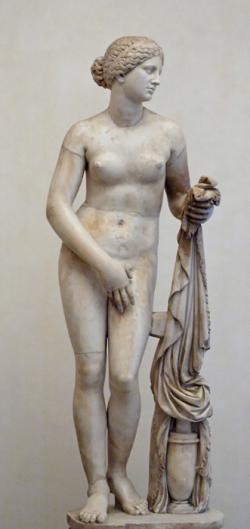Serendip is an independent site partnering with faculty at multiple colleges and universities around the world. Happy exploring!
On Vulnerability (co-written with Pia Wong)

 “The man was naked, the woman dressed. It didn’t look right, but the woman had somewhere to go. He lay clowning in bed, holding her wrist. She tried to put a shoe on. Under their window they heard truck doors opening, boxes of produce heaved onto tarmac. Felix sat up and looked to the car park below… Grace tapped the window with a long fake nail: “Babe – they can see you.” Felix stretched. He made no effort to cover himself. “Some people shameless,” noted Grace and squeezed round the bed to straighten the figurines on the windowsill” (113).
“The man was naked, the woman dressed. It didn’t look right, but the woman had somewhere to go. He lay clowning in bed, holding her wrist. She tried to put a shoe on. Under their window they heard truck doors opening, boxes of produce heaved onto tarmac. Felix sat up and looked to the car park below… Grace tapped the window with a long fake nail: “Babe – they can see you.” Felix stretched. He made no effort to cover himself. “Some people shameless,” noted Grace and squeezed round the bed to straighten the figurines on the windowsill” (113).

“The woman was naked, the man dressed. The woman had not realized that the man had somewhere to go. Outside their window came the noise of a carnival float testing its sound system, somewhere to the west, in Kensal Rise… The woman sat up and looked for the letter she had left on the man’s side of the bed, in the early hours of the morning. It had taken her a whole day and most of a night to “marshal her thoughts.” Finally, as Monday began, she had licked the glue on the white envelope and placed it on his pillow. He had moved it to a chair, unopened… “Aren’t you going to open it?” asked Natalie. “I’m going out,” said Frank… She could hardly believe that she had awoken to find herself in the same situation as yesterday, and of the day before, that sleep could not erase it” (389).
Felix and Natalie, while both naked, approach this in a similar fashion to Classical sculpture. Felix, a man, is shameless of his nudity, and boldly declares his masculinity, not fazed at all by the fact that anyone outside the window would be able to notice his nudity. Typically, Classical sculptures of men depict the man as strong and muscular, and are posed as if he is presenting his virility to the viewer. On the other hand, Natalie, a woman, probably would not have stood up in front of a window undressed. She is made vulnerable by her nudity. Classical sculptures of women are very reserved, and depict the woman as if she is ashamed of her body and its nudity. The difference between Natalie and Felix also applies to their personalities and view of life.
Natalie tries to figure out how to be herself, but she does not know how to identify herself. She already has two different “personalities”, or ways to act around people: Natalie, upper class, sophisticated, and put together, and Keisha, tough and raised in poverty. Even with these two options, she doesn’t know how to act like herself. She feels as if everyone around her has their lives figured out, and has the desire to be the same way. As a result, she resorts to placing ads on the Internet, looking for sex partners. Despite feeling that she is the “Keisha” part of her personality, and that she can do whatever she wants to under that guise, she is only successful at following through with her idea of having a threesome when she feels at her most vulnerable, after a day spent with her kids, unsure of what to do with them. She feels “trapped in a white painted box with two mysterious black-eyed others” (348). She tries to hide from this feeling by going to have sex with two young men. But this eventually backfires, when her husband, Frank, finds her emails and asks “Who are you?” (354).
Natalie is not capable of explaining who she is, even to her best friend Leah. Leah wants Natalie to not be perfect, so that she can feel better about her own life falling to pieces. “The perfect gift at this moment [would be] an honest account of her own difficulties and ambivalences, clearly stated, without disguise, embellishment or prettification. But Natalie Blake’s instinct for self-defense, for self-preservation, was simply too strong” (399). Although Leah and Natalie have known each other for most of their lives, Natalie still cannot admit that Leah might realize she is not always perfect. Natalie wants everyone who knows her to believe that she has her life together, but inside she could not be farther from that state.
Felix also wants to seem like he has everything figured out when, in fact, he is trying to run away from his past: Annie, his ex-girlfriend, whom he still occasionally has sex with. Even though he is in what he says is a “serious” (174) relationship with a woman named Grace, he still has sex with another woman. It seems as if he is with Grace mostly because she seems like the right kind of person to be with: safe, family-oriented, normal. However, Felix is still emotionally connected with Annie and it seems as though she was a very prominent part of his past life. Felix goes back to Annie, and despite professing his devotion to Grace, sleeps with her. His protests against her flirtations die quickly. It seems that Annie knows some secret part of him that pulls him to her.
It’s possible that he and Annie aren’t together anymore because they didn’t want the same future. Annie has very different morals from Grace and has problems with “coke, weed, drinks [and] pills” (173). She has no problem with being naked in public and is a free-spirited woman who doesn’t want to “pretend that every good time [she has] ever had in [her] life was some kind of extended adolescent delusion” (173), whereas Felix is trying to put his past behind him to start a new life with Grace. However, he is unable to do so until he breaks off all contact with Annie. He is at her apartment to tell her that but succumbs to her anyway. Even afterwards, it’s clear that he still loves Annie. While he also loves Grace, Felix seems to have a much more passionate relationship with Annie, describing his interaction with her as a “not-yet-invented process called particle transfer, wonderfully, blissfully light” (189).
The shameful woman and shameless man is a strong theme in Classical sculpture, and Natalie and Felix respectfully fill those roles. Natalie, with her lack of identity and vulnerability, hides behind a façade of what she believes would be her ideal personality. Felix, with his attempt to hide his past and proudly display his masculinity, can’t assert his future until he figures out his past and stops trying to mask it.


